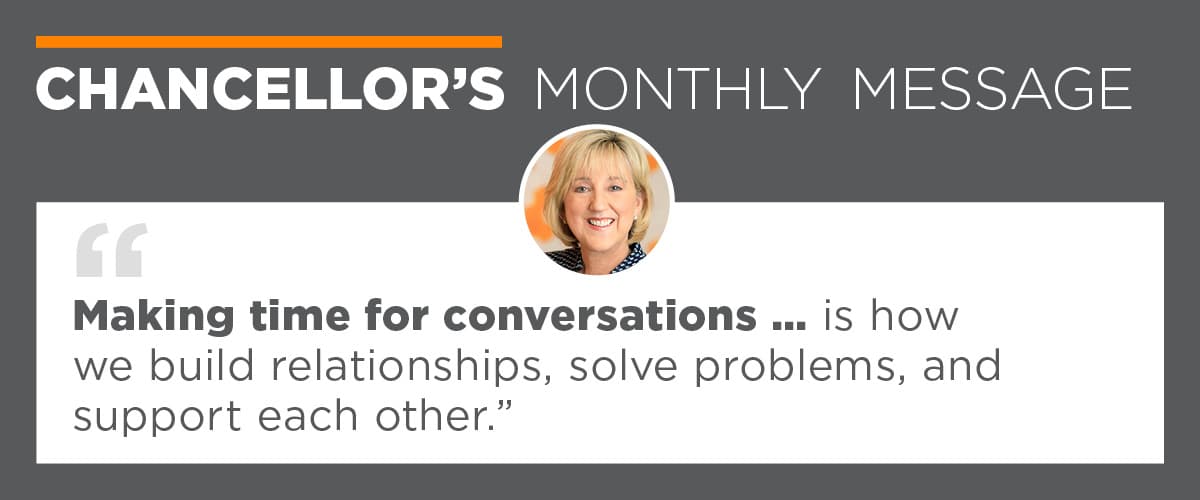How we build meaningful relationships

On Tuesday afternoons, I set up an office in the Student Union and meet with anyone who shows up. Some days there is a line of people waiting; other days there is a quiet but steady flow for two hours. One Tuesday in September President Randy Boyd joined me, and later this month the cabinet will, too.
In the three months I’ve been holding these office hours, most people who stop by have identified a problem they’d like help solving, have an organization or program they want to tell me about, or just want to connect.
I have spoken with students who asked for more water stations at football games, advice on how to increase diversity in their organizations, and feedback on the goals of SGA, sororities and fraternities, and other communities. I’ve heard concerns about graduate student stipends and the need to update some research labs. A group of staff members asked for more support for nontraditional students. One employee was preparing to donate an organ—perhaps the greatest, most selfless gift any of us could offer—and was met with barriers in our sick leave policy. We are working to change that policy and find solutions for many of the other issues that have come up.
Through these meetings, I’ve encountered students, faculty, and staff who are so proud of the work they are doing that they want to tell the chancellor about it. Faculty and staff have come by to tell me what it is like to work in their department. I’ve learned about our Humanities Center, undergraduate research, and a list of other programs and initiatives too long to recount here. It is thrilling to see the pride people have in their work. Some people don’t have an agenda but want to see if it’s true that they can stop in and say hello to the chancellor.
I have asked many, “What advice do you have for the new chancellor?” I’ve gotten a lot of suggestions, but above all, people said they want transparency and trust. They want a campus that feels like a community; they want to feel they belong; they want recognition for their work and respect from their colleagues.
It has been enlightening for me to connect with fellow Volunteers who are living on our campus, learning in our classrooms, working in our laboratories, developing our programs, supporting our students, and benefiting from our resources. I am learning from each of you the impact of our collective work and areas where you think we could be doing more.
On a large campus it is easier than we would like for students to get lost and for faculty and staff to feel disconnected. Making time for conversations, whether during office hours or over a cup of coffee, is how we build relationships, solve problems, and support each other. In order to be a campus where everyone feels they matter and belong, we all must make an effort to get to know one another and create genuine connections.
I encourage all of us to create more space for conversations with one another, and I hope more of you will stop by to visit with me. You can find me in the Student Union most Tuesdays from 3 to 5 p.m.